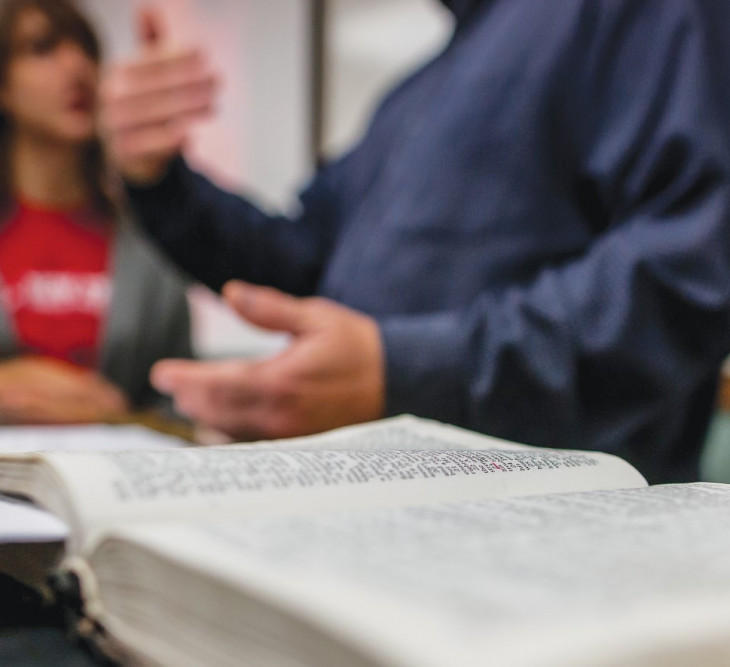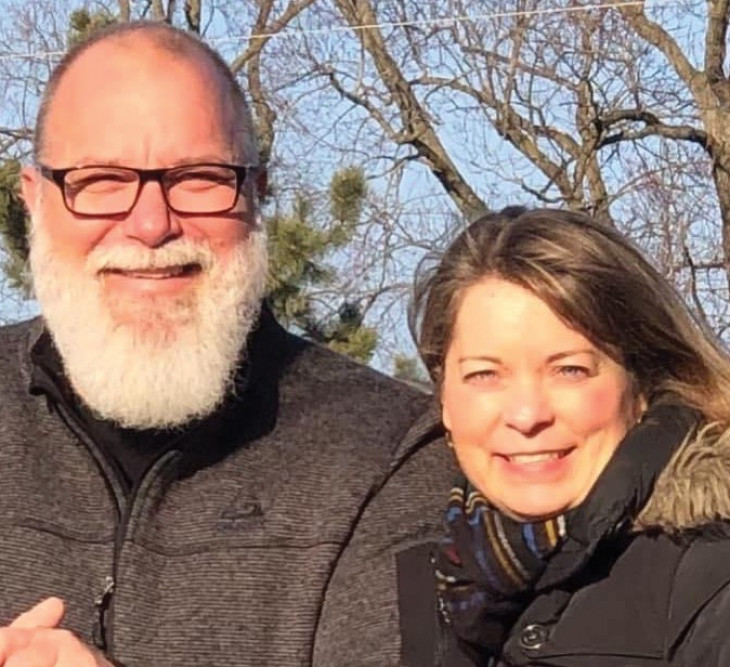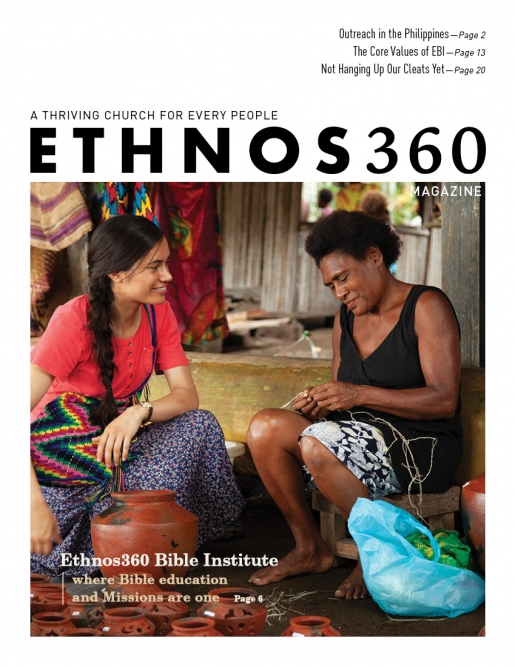Where Bible Education and Missions are One
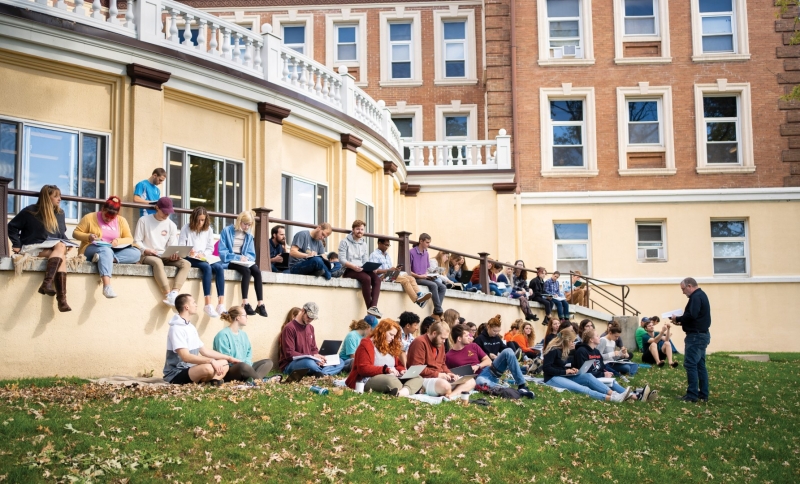
Last year in our magazine articles, we spent a good deal of time writing and publishing what could be called “white papers,” loading you (the audience) up with many facts and statements without a story line, per se. This year we want to change it up a bit. Besides, it is our 80th year as a mission organization, and I think it would be good to show you other facets of Ethnos360. This month, I would like to introduce you to Ethnos360 Bible Institute.
The Backstory
Obviously, the Institute didn’t just take off by itself, so let me give you the how’s and why’s of its birth. Taking a quote from last September’s article, “Paul Fleming had the desire to see the mission engage in preaching the gospel in ‘10 countries in 10 years.’ That goal was reached in only seven years. What had started in Bolivia continued to grow, and by 1954, the countries in which there were missionaries included Colombia, Brazil, Malay (now Malaysia), Paraguay, Japan, Papua New Guinea, Philippines, Panama, Senegal and four other countries.” Men and women from all walks of life and from many different countries were ready and willing to “go into all the world and preach the gospel.”
Ken Johnston was the chairman of New Tribes Mission from 1960 to 1987 and then was chairman emeritus until 2001. He penned a book titled The Story of New Tribes Mission on the first 40 years of the mission. Mr. Johnston had noted that so many of the new missionary candidates were quite young physically or spiritually and not well grounded in the Bible. Another of the first leaders, Lance (Doc) Latham, was one of the first teachers in the missions training classes. He was concerned because many of the candidates exhibited great lacks in basic biblical doctrines.
The First School
There was a gentleman named George H. Ziemer who was leading the Wisconsin Tabernacle located in Milwaukee, Wisconsin. Just like Paul Fleming, Mr. Ziemer had been saved under Paul Rader’s ministry, and with that connection, Mr. Ziemer became a friend of the fledgling mission. At the end of 1954, the mission’s main publication, Brown Gold, announced the opening of the new Bible institute, with its classes to be held at the Wisconsin Tabernacle, thanks to Mr. Ziemer.
On March 1, 1955, the first classes of the New Tribes Bible Institute started with 10 students as the first class. The schedule was a three-semester course containing strong missionary emphasis but geared to give the students a comprehensive understanding of God’s Word while experiencing the reality of the life of Christ in their everyday lives. The mission had purchased a three-story rooming house that was modified to make a dorm with a central dining hall.
Along with the study of the Scriptures, Bible doctrines were taught. Scripture memorization resulted in the students’ learning almost 600 verses by the end of the three semesters. Personal evangelism was taught in the classroom … and then put into practice on the streets of Milwaukee. The original course plan was arranged to give the students time to do the classwork and their homework and still be able to work part-time to support themselves. The first teachers were Doc Latham, George Ziemer and Ken Johnston. A student named Paul Burkhart went through the training and then took on the roles of dean of students in the dorm, director of the institute, one of the teachers, the school’s plumber and the students’ counselor.
It wasn’t until the 1962-63 academic year that the Tabernacle ceased to be large enough for the Bible Institute. The Lord provided the funds to purchase the building that had been the upscale Resthaven Resort that was later converted to the Veterans Memorial Hospital in Waukesha, Wisconsin. Once the renovations were completed in the five-story building, the Institute’s classes began there in September of 1963.

The Second School
It was in 1972 that it became clear that there simply wasn’t enough room in Waukesha to handle all the prospective students that wanted to study the Word of God. The question of purchasing another building for a second institute or just moving to a larger facility was bandied about. The conclusion was that two smaller schools would enable the staff to have more personal contact with the students, helping with the mentoring and shaping of the students, even if it meant more expense and redundancy in staff. The old Otsego Hotel in Jackson, Michigan, was purchased and readied for classes for the fall of 1972. Paul Burkhart willingly moved from Waukesha to Jackson to take on the responsibilities as its director. Six years later, the Institute was moved to a newer building in Jackson that the mission had used as a language institute and then had vacated. The Jackson Bible Institute was housed in this building until 2020.
There is one thing that I need to make clear: There had always been only one New Tribes Bible Institute, but there had been two campuses. The two campuses enjoyed yearly rivalry by competing in sports. Over the years, both blessed their respective communities with traveling choirs. (The choir has been discontinued for a number of years.) Churches in both towns have been blessed with many of the Bible Institute students attending and ministering for the time they are in school.
Consolidation
After 45 years of having one Bible Institute with two campuses, the executive board, in conjunction with the Institute’s leadership team, came to the conclusion that it would be wiser and more efficient to consolidate the two campuses into one. Maintenance costs, staffing requirements, and state and local regulations all pointed to the wisdom of consolidation. That came to pass at the end of the spring semester of classes in 2020. By God’s grace, everything was in place in Waukesha, Wisconsin, to welcome the combined classes in the fall of 2020.
Leadership
We recognize that God has led Ethnos360 from its inception as New Tribes Mission back in 1942. This year (2022) will be our 80th year of ministry. God has blessed the mission with leadership at the helm as we have gone through changes in methodology and style (see Issue 3, September 2021 Magazine). That same trust in God’s direction has seen many men in the position of presidents of the two Bible Institute campuses.
The Waukesha campus had the following men as leaders in maintaining the course of the Institute: Paul Burkhart, Duane Stous, Myron Gess, Noel Mayes, Marv Ketcham and Ron Lindsey.
The Jackson campus saw the following list of leaders maintain the directives given to them: Paul Burkhart, Bob Rinard, Ralph Hovland, Dave Knapp, Bob Strauss, Dave Meyers, Rex Gutwein, Rex Schaffner and Dan Falls.
.jpg)
Handing Off the Baton
It has been encouraging to see how the Lord has used each of these men in their positions of responsibility. So many young lives have been challenged to follow God’s leading whether into full-time cross-cultural ministries or back into a home church to be the instrument of His choosing.
Most recently, God has used Dan Falls and Ron Lindsey to lead the two Bible Institutes in the consolidation process which was completed in June 2020. With the closing of the Jackson Bible Institute, Dan and Casie Falls transitioned to a new ministry, currently serving in West Africa.
Mr. Lindsey with his wife, Carrie, has continued to serve as president of the consolidated campus in Waukesha, Wisconsin.
Now, two years removed from consolidation, Mr. Lindsey believes that it is an appropriate time for a new person to succeed him as president. This is a strategy that he believes is in the best interest of the school and frees the Lindseys to return to overseas fieldwork, something that they desire to do for their remaining years of service.
The Lindseys, prior to serving at the Bible Institute, were part of a successful church planting team in Papua New Guinea. In time, a solid church was established, the New Testament translated and elders appointed, and the church continues to stand strong. Mr. Lindsey states, “Those years of church planting were formative years for us. Those experiences have shaped our overwhelming burden for the least reached.”
We thank the Lindseys for their 20 years at the Bible Institute. If you would like to follow their new ministry endeavors, please see their article, “Not Hanging Up Our Cleats,” at the end of the magazine.
Sidebar: Hey, I know the Linseys!
Here's Andrew!
Mr. Lindsey explained the process of finding a replacement for the president of a Bible institute: “Over the past months, the EBI Leadership Team has considered Andrew Royer as a replacement for me as president of EBI. After prayer and consideration, the EBI leadership team in conjunction with mission leadership believe that Andrew Royer is an ideal person to assume the president’s position beginning July 2022.”
Because his parents were overseas missionaries, Mr. Royer has spent half of his life in Brazil and half in the USA. He is married to Sara Lynn, and together they have three teenage boys: Miles, Jackson and Jude. Sara was raised in Ohio. She graduated from Grace College (Winona Lake, Indiana) in 2001 with a Bachelor of Arts degree in Elementary Education. Mr. Royer graduated from New Tribes Bible Institute in Waukesha in 1998 and then earned a Bachelor of Arts degree in Biblical Studies and Youth Ministry from Grace College in 2000. He holds a Master of Divinity degree from Grace Theological Seminary in Winona Lake, Indiana, and has served as a pastor in the USA for 10 years. They have been with Ethnos360 since 2013. The Royers taught and served at the Brazilian missionary training program (Instituto Bíblico Peniel) with Ethnos360’s Global Partner Missão Novas Tribos do Brasil (MNTB) and has taught at Ethnos360 Bible Institute in Waukesha for the last five years. Their heart and focus are squarely set on training missionaries to reach the nations.
The students gravitate toward the Royers because they are relevant. Mr. Royer is easily entreated, articulate, a reasoning counselor and innovative. He has a hunger both for understanding the global realities and for contacting or visiting fields personally.
Mr. Royer will take over as president of Ethnos360 Bible Institute beginning in July of 2022.
I had the opportunity of getting some input from the Royers as they look ahead at their new responsibilities. I asked them about the challenges that they were anticipating in this role. Mr. Royer answered, “The landscape of our nation is changing. We can no longer assume incoming students will have a biblical understanding of family, ethics, morality or even the nature of truth. The world in which we serve is radically changing. The works that our mission is involved in now look different than they did in [the year 2000]. I would expect that our training might need to undergo changes to remain relevant to the task at hand.”
When I asked about any specific goals that they had, he responded, “Our program and our staff are solid. We are still going to work hard to show off how awesome God is and how ridiculously generous His love is for us and for the nations. By God's grace, we are going to teach the Scriptures cover to cover and operate in a currency of grace, love and humility. Our team is already working toward providing more relevant ministry exposure and experiences. I am excited to see how those practical experiences can be developed into our program.”
My request of you readers is to lift up the Royers in prayer as this new role becomes a reality for them.
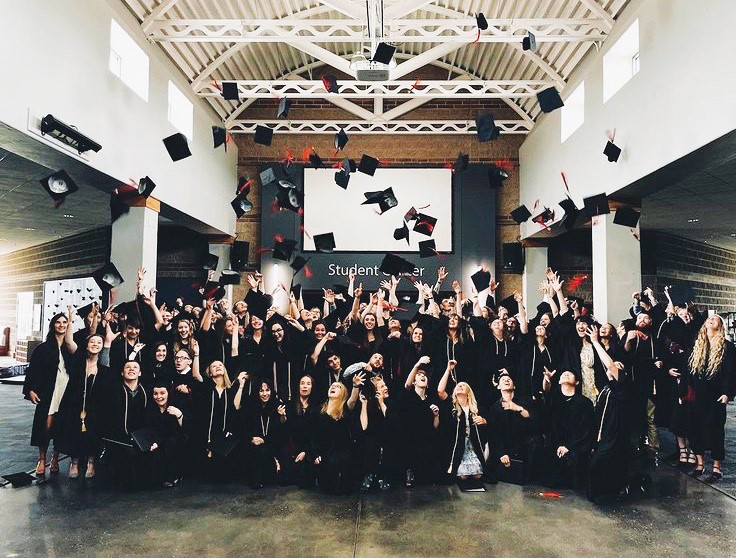
Sibebar: The Core Values of EBI
The Changing Faces of EBI
The Ethnos360 Bible Institute campus looks significantly different than it did in 1955, when it was founded. Over the last few years, the Waukesha campus has expanded and been renovated to accommodate the merger. The institute acquired a 26-unit apartment complex across the street to house married students with families, added another classroom, and renovated existing classrooms, student lounges and gathering spaces. Every semester there are improvements to the campus, making it a special place to live and study.
The current reality of our culture, however, is that many people are pursuing online education. This online program will continue to emphasize our core values. Our courses both in Waukesha and online are taught by Ethnos360 missionaries and flavored by our distinctives: a heavy emphasis on missions; a focus on discipleship, grace and Christian life principles; foundational teaching; and a strong emphasis on hermeneutics.
More information about the online classes
A Personal Comment
It was my privilege and honor to be an adjunct teacher at the Ethnos360 Bible Institute in the fall of 2020. I was able to see the students as they were in the different stages of the four-semester course, covering each book of the Bible while also covering principles of communication, hermeneutics, public speaking, evangelism and other electives. The classes are still arranged so that the students can work part-time and still do the required work. I was able to interact with both Andrew and Ron, watching them deal with issues in the Institute, all the while making sure that the students were learning and growing. I anticipate watching the Institute grow and continue sending out laborers into the whitened fields.
Get in contact with the Institute at e360bible.org or call them at 262-542-9411 or at 855-806-2489 (admissions). You can set up a time to visit as a family or as a student.

